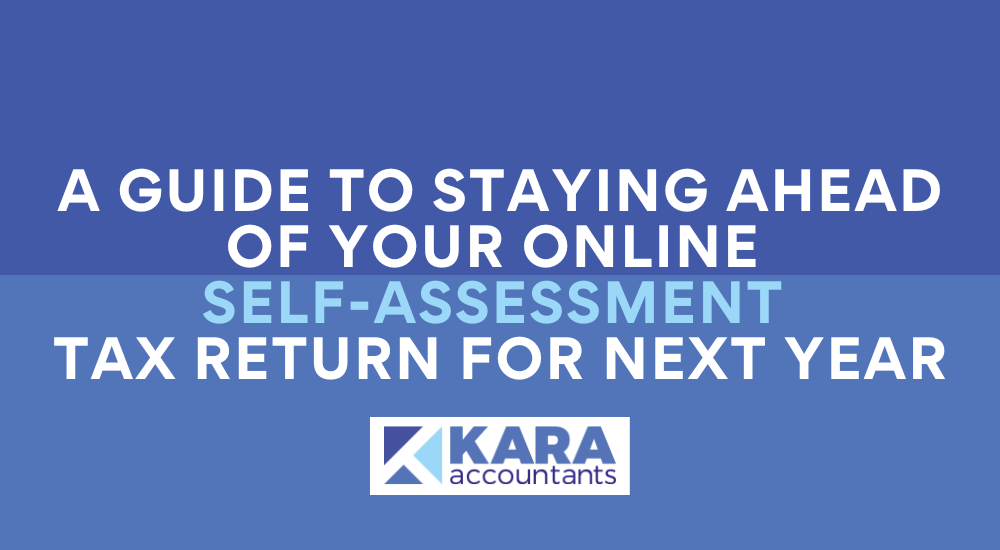
A Guide to Staying Ahead of Your Online Self-Assessment Tax Return for Next Year
Now that this year’s tax return is done, let’s think about next year! As the saying goes, “Success is where preparation and opportunity meet.” This couldn’t be truer when it comes to managing your finances, particularly in the realm of self-assessment tax returns. Proactively addressing your tax responsibilities ensures a smoother process, reduces stress, and allows you to focus on what matters most—your business or personal pursuits. In this blog, we’ll explore strategies to get ahead of your online self-assessment tax return for the upcoming year.
Organise Your Financial Records:
The foundation of a successful tax return is solid record-keeping. Take the time to organise your financial documents, including receipts, invoices, and statements. Utilise digital tools or apps to digitise and categorise your expenses throughout the year, making it easier to access and compile the necessary information when tax season arrives.
Stay Informed about Tax Law Changes:
Tax laws are subject to change, and staying informed about these changes is crucial for accurate and efficient tax filing. Regularly check government websites, subscribe to newsletters, or consult with a tax professional to ensure you are aware of any updates that may impact your tax obligations. Being proactive in understanding tax law changes will help you avoid surprises and potential penalties.
Set Aside Funds for Taxes:
One common pitfall is failing to set aside funds for tax payments throughout the year. Establish a separate savings account specifically for taxes and regularly contribute to it based on your estimated tax liability. This disciplined approach ensures that you have the necessary funds available when it’s time to settle your tax obligations, preventing financial strain.
Utilise Technology to Your Advantage:
Take advantage of the various technological tools available to simplify the tax filing process. Many accounting software solutions offer features such as expense tracking, automatic categorisation, and report generation. Leveraging these tools not only saves time but also minimises the risk of errors in your financial data.
Schedule Regular Check-Ins:
Make it a habit to schedule regular check-ins with your financial records throughout the year. This proactive approach allows you to identify and address potential issues early on, ensuring a smoother and more efficient tax filing process. Regular reviews also help you maintain a clear understanding of your financial health.
Consider Professional Guidance:
If managing your tax responsibilities becomes overwhelming, consider seeking professional guidance. A certified accountant or tax advisor can provide valuable insights, ensure compliance with tax regulations, and offer strategic advice to optimise your financial situation. While there may be associated costs, the benefits of accurate and stress-free tax filing often outweigh the expenses.
Getting ahead of your online self-assessment tax return is a proactive and strategic approach to financial management. Remember, a well-prepared tax return not only fulfills your legal obligations but also contributes to the overall stability and growth of your financial well-being.

This Post Has 0 Comments